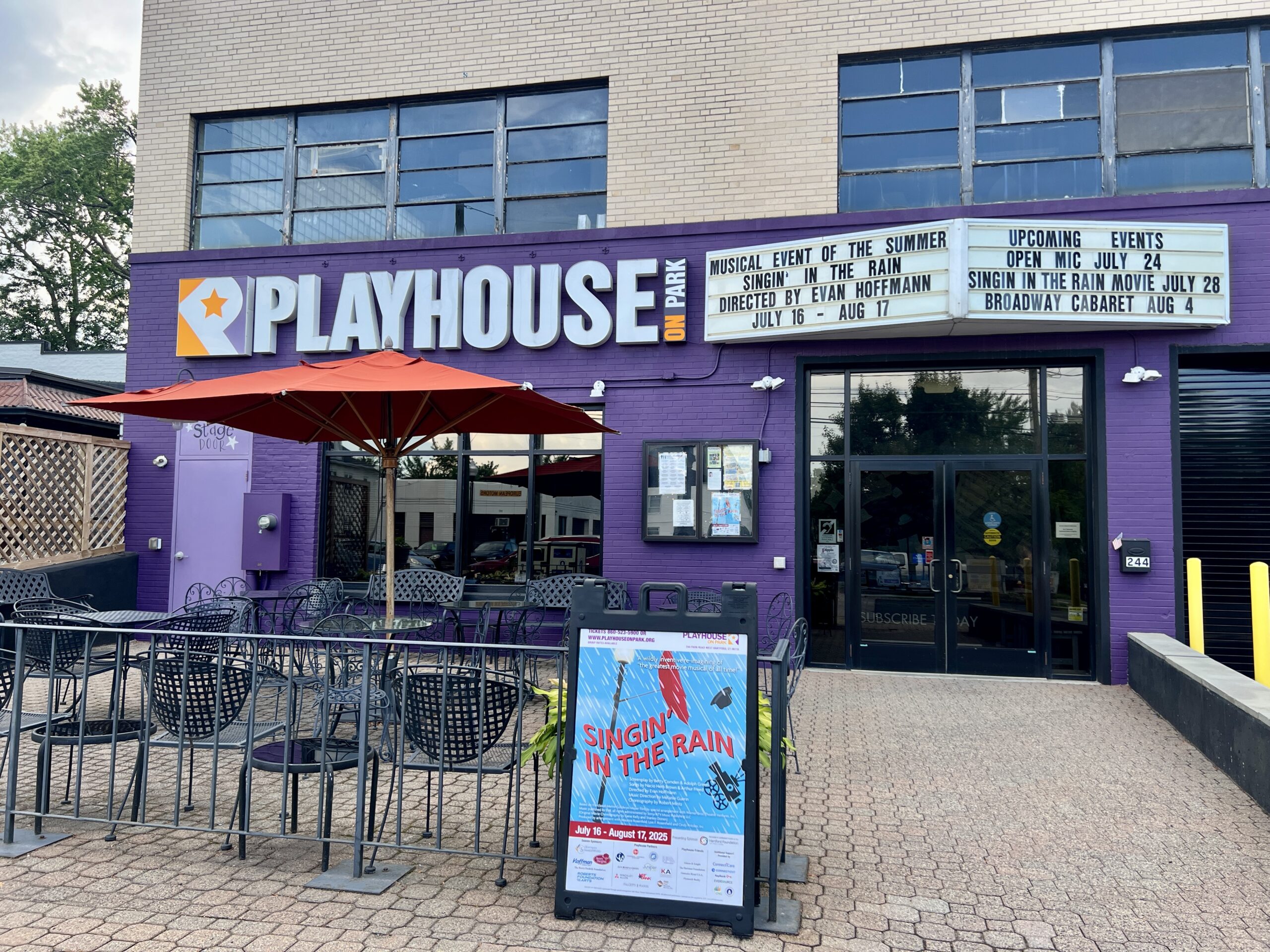Lamont Sees No Deal on Gambling in ’19 Session

Audio By Carbonatix

Gov. Ned Lamont (left) and Rodney Butler, chairman of the Mashantucket Pequot tribal nation, attempt to talk away from reporters inside the Connecticut Convention Center. Photo credit: Frankie Graziano, Connecticut Public Radio. Courtesy of CTMirror.org
Rep. Joe Verrengia of West Hartford co-chairs the committee that oversees gambling issues, and said he supports the governor’s refusal to moved forward without a grand bargain with the state’s two tribes.
By Mark Pazniokas, CTMirror.org
Gov. Ned Lamont’s efforts to negotiate a grand bargain with the state’s two federally recognized tribes about casino expansion and the legalization of sports betting have stalled, most likely signaling that the 2019 legislative session will end next month without passage of a major gambling bill.
On his way into a tourism conference in Hartford on Wednesday, the governor told CT Mirror, “We’re trying to get something done, but we’re not going to get it done in this session.”
The Lamont administration has been talking for months with the tribal owners of Foxwoods Resort Casino and Mohegan Sun, which have exclusive rights to casino gambling in Connecticut, and MGM Resorts International, a regional competitor that recently opened a casino in Springfield, MA, and purchased a video-only “racino” in Yonkers, NY.
Sources say the administration was pushing a deal that would have given the tribes the right to sports betting and a casino in Bridgeport if they agreed to scale back or abandon the casino they want to jointly build in East Windsor, not far from Springfield.
Sports betting – whether online or at the casinos, off-track betting parlors or other locales – is intertwined with Connecticut’s complicated gambling relationship with the tribes, as well as the tribes’ fight with MGM for market share. Lamont is open to legalizing sports betting, but only if his administration can resolve all related issues.
“I don’t think we’re going to see it happen in this session,” Lamont later told a small group of reporters after addressing the tourism conference. His audience included Rodney Butler, the chairman of the Mashantucket Pequots, who listened to the governor take questions from the press.
Lamont was asked if that assessment applied to all gambling bills.
“From my point of view, I want a global solution to this thing that’s been stuck in legal limbo for an awful long time,” Lamont said. “And I’d love to make a deal with Rodney. I’d love to make a deal with Mohegan and MGM in a way that I honor my compact with Rodney and the tribes – that includes internet, it includes sports. But I’m not going to do it if we don’t have a global solution.”
Lamont has been trying since January to find a path out of what he called the “legal muck,” a continuing battle between the tribes and MGM over an East Windsor casino the tribes intend to jointly develop to compete with MGM Springfield. MGM has won legislative allies in Bridgeport and New Haven by proposing a Bridgeport casino – if the state allowed it.
The administration’s goal was to redirect the tribes from East Windsor to Bridgeport. A sweetener for the tribes was exclusive rights to sports betting. The presumption was MGM would settle for a deal that removes a casino from its doorstep in Springfield, or at least shrinks it.
Butler declined to confirm that.
“That would be easy, right?” Butler said sarcastically. “Nothing complicated about that.”
Rep. Joe Verrengia, D-West Hartford, co-chair of the committee that oversees gambling issues, said he supported the governor’s refusal to moved forward without a grand bargain. “If it takes more time to get a deal done, I think that’s OK,” he said. “I think it’s more important for the governor to stand strong in his negotiations and get the best deal possible for the state of Connecticut.”
Butler called the talks complicated, but he still expressed hope of an eventual resolution allowing the tribes and the state to go forward with sports betting. The tribes say sports betting is a casino game, meaning the state needs to negotiate with them or face potential litigation over the question of exclusivity.
Lamont and Butler walked away from reporters at the conference to talk privately, then returned to take a few questions. Lamont reiterated that he would love to make a deal with Butler and the Mohegans, but did not see it happening before the session ends.
Butler insisted that MGM was “not part of the equation”declined to speak in detail about the parameters of a possible deal or why none has been struck.
“It’s just complicated,” Butler said. “As the governor said, we’re looking for a global solution, and there are a lot of moving parts.”
All gambling issues in Connecticut are complicated by the state’s de-facto partnership with the two tribes. In return for exclusivity, the tribes pay the state 25 percent of gross slots revenue, which has produced about $8 billion for the state in the past quarter century.
MGM, however, says it will sue to challenge the 2017 passage of a state law authorizing the tribes to jointly build a casino in East Windsor, which would be the first casino not built on tribal lands.
The U.S. Department of Interior recently granted final approval to amendments to the state’s gambling agreements with the tribes, removing the last governmental obstacle to constructi0n of a gambling facility half way between Hartford and Springfield, just off I-91.
Butler said the partnership is now seeking financing to begin construction. The project has been on hold since September 2017, when Interior initially refused to act on the amendments to the Connecticut gambling agreements. That was the same time when MGM further complicated things, proposing a Bridgeport casino – if the state opened up to competition.
“We’re actually in that process of getting financing,” Butler said. “We basically had to dust everything off. We’ve been on hold for a year and a half, I mean re-engaging with construction teams and design documents and everything. So, we’re in that process now.”
Reprinted with permission of The Connecticut Mirror. The author can be reached at [email protected].
Like what you see here? Click here to subscribe to We-Ha’s newsletter so you’ll always be in the know about what’s happening in West Hartford!



